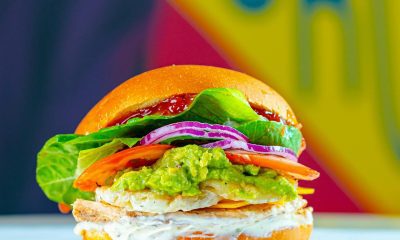News
Why South Korea is banning the sale of dog meat

Dog meat is the fourth-most consumed meat in South Korea after pork, beef and chicken. (Pexels Photo)
The South Korean dog meat trade will officially end in 2027 after a bill was passed making the slaughter of dogs and the sale of dog meat for human consumption illegal in the country (though the consumption of dog meat will still be legal). People who violate this new law could be fined up to 30 million won (about £18,000) and be jailed for three years.
The news has been embraced in South Korea as a long-awaited victory by many animal protection organisations. But it has also been received very negatively by pro-dog-meat associations, as the livelihoods of dog meat farmers and retailers will be directly affected by this legislation.
Dog meat is the fourth-most consumed meat in South Korea after pork, beef and chicken. However, the practice of eating dogs has been in sharp decline over the past few decades and has divided South Korean society for more than half a century.
For some, the trade represents resistance against cultural imperialism. For others, it is an obstacle to modernity. All the while, little attention is given to the fate of other animals whose death and commodification as meat are largely normalised and accepted.
Stigmatisation of a practice
Dog consumption has a long history in Korea. Some Korean scholars point to the excavation of dog bones from Korean relics dating to the Neolithic age (roughly from 6000BC to 2000BC) as evidence that dogs have been eaten since at least that period.
But an important moment of national and international friction around the practice occurred in the run-up to the 1988 Seoul Olympic Games. The South Korean government at the time banned the sale of dog meat temporarily in the traditional markets of the capital and asked dog meat retailers to remove dog carcasses from their stalls to avoid offending foreigners.
This decision was widely criticised by part of South Korean civil society who saw it as a form of cultural imperialism reminiscent of colonial times when many Korean cultural traditions were erased or stigmatised. This episode aroused feelings of national pride and protection towards the consumption of dog meat.
It was followed by a stronger reaction during the 2002 Fifa World Cup (which was co-hosted by South Korea). Influential South Korean public and political figures took a public stance in favour of dog meat as a national cultural symbol.
Tensions were further reignited before the 2018 Winter Olympics in Pyeongchang, a city in the country’s north-east. It was reported that the hiding of dog meat restaurant signs and dog carcasses had once again been introduced by the government.
A practice in sharp decline
However, there’s no denying that dog meat consumption in South Korea has slumped dramatically, particularly since 2000. In 2002, 3 million dogs were slaughtered for consumption in South Korea per year. According to animal protection group, Kara, this had fallen to just under 1 million by the early 2020s – a third of what it was more than 20 years ago.
In recent decades, a civil movement led by animal protection charities has campaigned for the end of the trade. This movement has largely been supported by younger generations who, perhaps also influenced by the development of “pet culture”, are more inclined to challenge centuries of tradition than previous generations.
It could be argued that the COVID pandemic has also played a part in the sharp fall in dog meat consumption in recent years. Until the outbreak of COVID, live animals, including dogs, were often sold and slaughtered in traditional markets. Since then, municipal authorities have opened a dialogue with dog retailers to negotiate the demolition of dog slaughtering facilities.
Ongoing research conducted by one of us (Julien Dugnoille) alongside colleagues (Frédéric Keck and Miwon Seo-Plu) suggests that the pandemic may have facilitated a move away from the status quo on dog meat consumption. This shift has created a discussion around the end of the practice as a way to keep urban spaces free from the risk of diseases that can be spread between animals and humans.
The perspective of the dog farmers
Since 2014, some of these municipalities have agreed to compensate dog meat retailers for closing dog meat stalls in traditional markets. However, now that a full ban is coming into effect, dog meat farmers are requesting compensation schemes as this new law will directly affect their livelihoods.
The Korean Dog Meat Association has been arguing that the bill represents an abuse of power that overlooks the perspective of many South Koreans, and that it infringes on the right to choose what one wants to eat. Last December, the Association demanded compensation for farmers of 2 million won per individual dog (about £1,200) and a grace period of ten years after the ban.
While the ban may be good news for Korean dogs, dog lovers and for animal protectionists, it adversely affects those whose livelihoods depend on the domestic trade and who have practised the profession for generations.
The change does not necessarily mean an end to the consumption of dog meat in South Korea. Dog meat consumption will continue to be lawful (presumably supplied by imported meat).
Still, this is a milestone for the Korean relation to dogs that cements the dog’s privileged status, in contrast to other animals whose commodification as meat remains normalised and invisible.![]()
![]()
Julien Dugnoille, Senior Lecturer in Anthropology, University of Exeter and John Knight, Reader in Anthropology and Ethnomusicology, Queen’s University Belfast
This article is republished from The Conversation under a Creative Commons license. Read the original article.





















